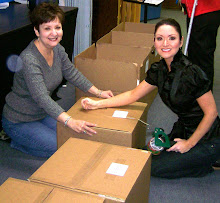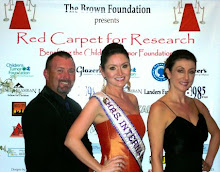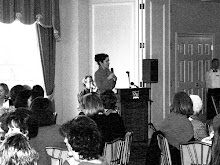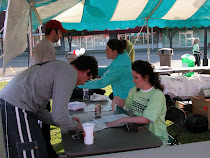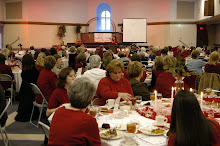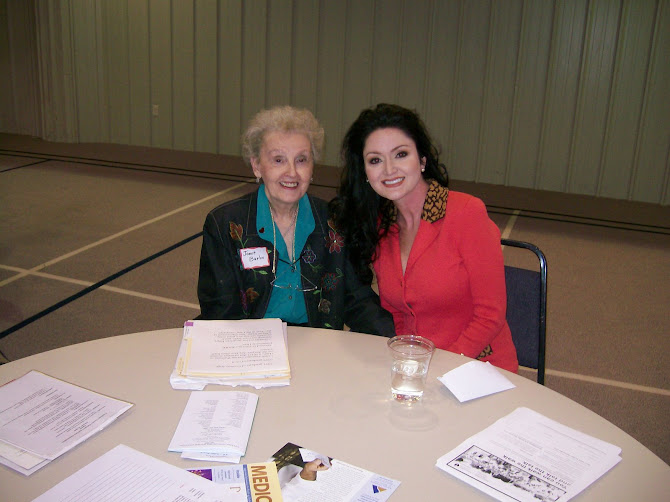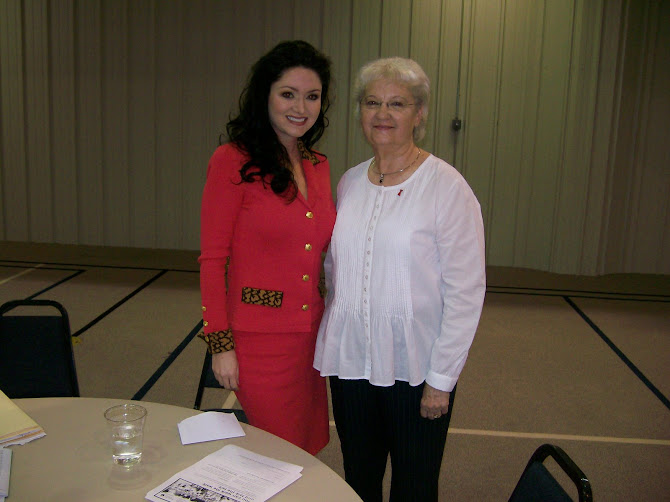A new report from the U.S. Surgeon General has been released on the health effects of cigarettes. The conclusion was clear: cigarettes are still a deadly threat and even small amounts of smoke can have serious health effects.
Please share this new study with lawmakers and ask them to support tobacco prevention in your state!
With this recent report on tobacco smoke it is more apparent than ever that we need to take steps to reduce smoking in our state. The study talked about the biology behind how smoking and exposure to smoke actually causes disease.
According to the Surgeon General even limited exposure to smoke can have serious health risks. "That one puff on that cigarette could be the one that causes your heart attack," Surgeon General Regina Benjamin said. Or it could be the one that damages someone else's heart: "I advise people to try to avoid being around smoking any way that you can," she said.
The American Heart Association is working to reduce tobacco consumption across the nation and our state. We are proud to support smoke-free workplaces, well funded tobacco prevention and cessation programs, and strong enforcement of youth access to tobacco products.
Please share this report with lawmakers and ask them to join us in our fight against tobacco use. FYI you can read the Surgeon General's report here:
http://www.surgeongeneral.gov/library/tobaccosmoke/index.html
Thursday, December 9, 2010
One Cigarette=One too many!!
Posted by Laine Berry at 2:53 PM 0 comments
Monday, November 22, 2010
Fast Food Ads Target Children
Researchers at the Rudd Center at Yale University have reported that one-third of children and teens eat fast food at least once a week. The Rudd Center compiled data over a one year period on 12 of the nation's fast food restaurants.
Teens get 16 percent to 17 percent of their calories from fast food restaurants. Of critical concern is the finding that teens order 800 to 1,000 calories in a single meal with 30 percent of those calories coming from saturated fat or sugar at those fast food restaurants. Those numbers represent about half of the recommended daily calorie intake.
Researchers reviewed 3,039 possible meal combinations designed for children such as the McDonald's Happy Meal and found that only 12 met the nutritional criteria for preschoolers and 15 met the nutritional recommendations for adolescents.
Subway and Burger King were the only restaurants offering those 12 - 15 meal combinations that would meet nutritional recommendations for children and adolescents. Meals included the Veggie DeLite at Subway and mac and cheese at Burger King.
Marketing plays a major role in increased consumption of fast foods. Surveys of parents reveal that 40 percent say their children ask to go to McDonald's a least once a week. A whopping 84 percent of those parents, in turn, had taken their children to a fast food restaurant in the previous week. Despite claims of reducing marketing to children, the Los Angeles Times reported from 2007 to 2009 preschoolers saw:
* 56% more ads for Subway
* 21 % more ads for McDonalds
* 9 % more ads for Burger King
Children ages 6 to 11 see even more ads:
* 56% more for Subway
* 26 % more for McDonalds's
* 10 % more for Burger King
For more information on this remarkable survey, see: http://healthland.time.com/
In Houston we are working to get more nutritional content on menus so people know what their ordering. You can check out our blog at www.houstondines.blogspot.com.
32764-inter-phot
Stay Healthy this Holiday Season
They say that during the holiday season people are more likely to pack on the pounds than during other parts of the year. Treating yourself a little expected, but be careful of overindulgence. The American Heart Association would like to share with you our Nutrition Center.
You can go here for all types of information including healthy recipes, heart smart shopping, and things to consider when dining out. Learn more.
Posted by Laine Berry at 7:29 AM 0 comments
Monday, November 15, 2010
Healthcare reform, and what it means for you
If you’re like most Americans, you have questions about how the new health reform law, the Affordable Care Act, will affect you and your family. The American Heart Association has produced a series of brief videos with questions from real consumers and responses from experts about how the new law will impact patients with heart disease or stroke. Learn more by visiting: http://www.heartsforhealthcare.org/.
Here are some videos that you may find helpful:
"Will health care reform make coverage more affordable for families like mine? How will it work?"
http://www.youtube.com/watch?v=Dr1-92P-Uxs&feature=player_embedded
“How will healthcare reform address the needs of patients like me, who have lost their jobs and employer insurance?”
http://www.youtube.com/watch?v=4sh-rbM1P3g&feature=player_embedded
"Will the new health reform law make prevention and preventive coverage an integral part of health care and place more emphasis on preventing disease, rather than treating it?”
http://www.youtube.com/watch?v=4sh-rbM1P3g&feature=player_embedded
Posted by Laine Berry at 7:17 PM 0 comments
Tuesday, November 9, 2010
Arkansas Receives National Attention!
Efforts to put AEDs in all Arkansas schools were recently highlighted in the American Heart Association's annual Advocacy Pulse. We are so proud of this accomplishment we want you to tell your lawmakers about it. They deserve recognition for providing these lifesaving tools for all Arkansas students.
Click here to share this news with your lawmakers.
The Advocacy Pulse highlights the great progress that AHA volunteers and staff have accomplished over the past year. Arkansas has made great strides in AED placement and our recent press event is highlighted. Over 11,000 students across Arkansas supported this effort by signing petitions and completing coloring sheets that were delivered to Governor Beebe.
To view the issue of Advocacy Pulse yourself click here and go to page 22: www.heart.org/statelegislativewrapup
We thank all of the students and volunteers that helped raise awareness about the need for AEDs and CPR in schools. With your help we can continue to build healthier lives free of cardiovascular disease and stroke. Thanks!
Barbara Kumpe
Government Relations Director
Heart Disease and Stroke. You're the Cure.
Posted by Laine Berry at 8:33 AM 0 comments
Thursday, November 4, 2010
Breaking News!
BREAKING NEWS - CT Scans Shown to Reduce Lung Cancer Deaths!
The National Cancer Institute released initial results today from the National Lung Screening Trial (NLST), which compared low-dose spiral CT to standard chest X-ray in the early detection of lung cancer. The trial found 20 percent fewer lung cancer deaths among those screened with CT compared to those screened with chest X-ray.
“We welcome this announcement of the results from this landmark trial and the important new scientific information it provides about the roles of CT and X-ray in the screening and early detection of lung cancer,” said Joan Schiller, MD, president of the National Lung Cancer Partnership and chief of hematology/oncology at the University of Texas Southwestern Medical Center. “We now have a path forward and the evidence we need to advise people about screening – especially those at high risk for this disease. This trial is the first to look at these screening methods in a randomized controlled study, which is considered the gold standard of scientific research.”
The study, ongoing since 2002, included more than 53,000 men and women ages 55 – 74 who were at very high risk for lung cancer. Participants had a heavy smoking history, defined as at least one pack of cigarettes per day for 30 years or more.
“This is important new information for people at risk for lung cancer and their health care providers,” said Regina Vidaver, PhD, executive director of the National Lung Cancer Partnership. “Lung cancer is the No. 1 cause of cancer deaths in the U.S. and people are clamoring for guidance on what they can do to find it in its earliest stage when it is more treatable. This data guides our recommendations.”
“Now, more than ever, it’s important for people to talk with their doctors about whether CT screening is right for them,” said Dr. Vidaver. “Each patient deserves an evaluation and recommendation that takes their personal situation into account.”
Additional information from the NCI trial:
* Participants in the trial were randomized to receive either a CT scan or chest X-ray annually for three years.
* 25 percent of the group screened by CT had abnormal findings that required further follow up, such as additional CT scans, lung biopsy and/or thoracic surgery. Further analysis is needed to determine what proportion of those abnormalities were false positive findings.
* An analysis with more detailed results will be prepared for publication in a peer-reviewed journal within the next few months.
“These results give us clear indication how to screen those who are known to be at high risk of the disease. However, the Partnership continues to advocate for research into additional screening methods that will identify other high risk groups without a heavy smoking history,” said Dr. Schiller.
The Partnership also promotes and directly funds needed research into improving our understanding of lung cancer, its basic biology, risk factors, and how to prevent and treat the disease, which kills more people each year than breast, prostate, colon and pancreatic cancers combined.
For more information about the latest in lung cancer research updates, follow us on Twitter or Facebook, or visit our website at www.NationalLungCancerPartnership.org.
Posted by Laine Berry at 2:47 PM 0 comments
Wednesday, July 7, 2010
Arkansas Advocacy Director Wins Highest AHA Honor!
It has been my absolute honor and pleasure to work for nearly 10 years with Arkansas Advocacy Director Barbie Kumpe. Barbie is the AHA's paid lobbyist, and heads our lay-lobbyist team. In the last few years Barb has spearheaded such life-saving legislation as the BMI Act, the Clean Indoor Air Act, The Antony Hobbs Jr. AED act, the Stroke Registry, etc. The work that Barb has done is almost too much to list, and has saved untold numbers of lives.
Mid last year I was informed by our regional Advocacy Director, Terri Broussard, that Barb was going to be nominated for the national Rome Betts award, the AHA's highest honor for employees. The vetting process for determining the winner is long and arduous. Nominees are sent in from every region of the US, and winning this award is truly a career achievement. I was asked to compile a letter which addresses specifically my experiences with Barbie, and why I, as a member of her team, felt she was deserving of this honor.
A few weeks ago we learned that Barbie had won the Rome Betts, and we were elated! Last week we threw her a bit of a surprise party, with her friends, family and co-workers in attendance, to present her with her award. I was so honored to be able to help present Barb with this amazing accolade, and am even more honored to be able to serve alongside her to save lives in the natural state and across the nation!
Thank you SO MUCH Barb, for all you have done and continue to do!!!
Posted by Laine Berry at 9:41 PM 0 comments
Tuesday, June 15, 2010
News from the Lung Cancer Partnership
The American Society of Clinical Oncology (ASCO) held their 2010 Annual Meeting from June 4-8 in Chicago, IL. Here are a few of the highlights in lung cancer research that were presented at the meeting:
New drug targeting ALK gene shows promise for some advanced Non-Small Cell Lung Cancer (NSCLC) patients
Researchers presented encouraging results of a study using a new drug called crizotinib to treat advanced NSCLC patients with an ALK gene fusion. In about 1 out of 20 NSCLC patients, the ALK gene has fused with another gene, which can drive tumor growth. Crizotinib inhibits this process. In the study, crizotinib stopped tumor growth in most patients with the ALK gene fusion, and shrank the tumor in nearly half the patients. Currently, crizotinib is available to patients with the ALK gene fusion as part of a clincial trial.
New agent shows promise for patients with advanced NSCLC
Partnership Board of Directors President Dr. Joan Schiller presented the results of a worldwide study testing novel agent ARQ 197. This agent was found to significantly improve progression-free survival for patients with locally advanced or metastatic NSCLC when added to erlotinib after chemotherapy. Click here to watch a video from ASCO of Dr. Schiller presenting the results. ARQ 197 is available to patients as part of a clinical trial.
Drug combination effective for older patients with advanced lung cancer
A new study shows that a standard chemotherapy treatment currently used for younger patients with advanced lung cancer, a combination of paclitaxel (Taxol) and carboplatin (Paraplatin), is just as effective in patients 70 or older. Patients who received the combination therapy lived about four months longer than patients who received the standard single drug treatment for patients in this age group.
Selenium shown not to prevent a 2nd lung cancer tumor
Researchers presented the results of a study examining whether selenium supplements could prevent a second tumor in people who previously had stage I NSCLC. The study concluded that selenium did not prevent a second tumor. The study was stopped early because patients receiving selenium had a slightly higher risk of developing a second tumor than patients who did not receive selenium.
Posted by Laine Berry at 12:20 PM 0 comments
Monday, June 14, 2010
How healthy are our kids?
Do you know how many kids between the ages of 2 and 19 are considered obese in the U.S.? Or what percentage of American elementary schools provide physical education?
I think you'll be shocked to learn the answers - I certainly was.
Please take our short Healthy Kids Quiz today, and join our fight for healthier kids.
Through the Child Nutrition Act reauthorization, we have a chance to improve nutrition and physical activity in our nation's schools- but only if Congress acts now. Childhood obesity is an epidemic in this country and we can't afford to keep waiting for Congress to make the health of our kids a priority.
Take two minutes today to find out how much you know about our kids' health and what you can do to make a difference. Join the fight for healthier kids today.
Posted by Laine Berry at 8:35 AM 0 comments
Monday, June 7, 2010
WI Passes Bill to Help Educate Students about CPR and AEDs
WI Passes Bill to Help Educate Students about CPR and AEDs
On May 10, 2010, Wisconsin Governor Jim Doyle signed a piece of legislation that requires school boards and school operators to provide high school students instruction in cardiopulmonary resuscitation (CPR), cardio-cerebral resuscitation (hands only) and information on automated external defibrillators (AED). This life saving legislation will be in effect beginning the 2011 school year.
You’re the Cure advocates were fully engaged in support of the bill, sending nearly 500 messages into their legislator’s offices! Advocate Mike Uttech of Green Bay, WI, played a crucial role in securing leadership for the bill. Mike knows the importance of CPR and AED education, having suffered cardiac arrest while on a treadmill at his local health club. Mike’s life was saved by lay rescuers using CPR and an AED. Thanks to their efforts, he recovered well enough to attend a Green Bay Packers football game three days later! Jack Simono, another You’re the Cure advocate and survivor from Two Rivers, WI, also stepped up to help secure leadership for the bill in the state legislature.
At the public hearing for the bill, Mike Uttech shared his story and was joined by yet another You’re the Cure advocate, Jill Rasmussen, a director at a YMCA , who’s considered a hero for saving a life on a racquetball court with CPR and AED.
You’re the Cure advocates were instrumental in the passage of this crucial legislation. Congratulations to Wisconsin for this outstanding success to help get high school students the education they need to save lives!
Posted by Laine Berry at 7:37 PM 0 comments
Action for Nutrition Education and Wellness in Schools
Action for Nutrition Education and Wellness in Schools
This week, Members of Congress return to Washington, DC, following the Memorial Day recess. You’re the Cure advocates used the recess break to meet with their legislators and deliver hundreds of lunch tray petitions to push for action on the Child Nutrition Act.
Now, we need to continue that push and work to ensure the final bill includes the provisions that will make a difference for the health of our kids.
Strengthening nutrition education in schools, providing school districts with the resources they need to implement their wellness goals, and keeping parents informed and involved in reaching those goals, are all provisions that would be accomplished through the Nutrition Education and Wellness in Schools Act (NEW Schools). But we need your help to build support within the House of Representatives.
Ask your Representative to show their support by cosponsoring the NEW Schools Act today!
Take Action Now
Posted by Laine Berry at 7:36 PM 0 comments
CPR & AED Awareness Week: Are YOU Trained?
CPR & AED Awareness Week: Are YOU Trained?
Getting people to act quickly in a cardiac arrest emergency is critical to a victim’s survival because time is not on their side. Four to six minutes is the window of opportunity for someone to act before it is too late, but fewer than one-third of cardiac arrest victims get CPR from someone nearby.
The American Heart Association wants more people to take action and help cardiac arrest victims. That’s why we’re challenging one million people to learn about CPR and get trained during the month of June. Visit www.cprweek.org to learn about hands-only CPR, play Be the Beat to learn the correct rate of CPR compressions, or record your CPR & AED training or the training you gave someone else.
Posted by Laine Berry at 7:35 PM 0 comments
Wednesday, June 2, 2010
Take action on School Lunches
With members of Congress in their home districts until this Friday, the American Heart Association is organizing a week of action to keep the pressure on Congress in our fight for healthier kids.
All across the country, advocates are "serving-up" lunch tray petitions to their Senators and Representatives, to urge them to pass the Child Nutrition Act this year- and we need you to join in the action!
Make sure your legislators are receiving this important message by following the steps below:
DOWNLOAD and PRINT your lunch tray petition!
PERSONALIZE your petition with a note and your contact information
DELIVER a copy of the petition to your Senators and Representative by dropping-by their district offices (you can find the office closest to you by visiting your Members' websites)- OR by faxing a copy into their offices (numbers below).
REPORT BACK to let us know you have delivered your lunch tray petition
SHARE this message with family and friends and urge them to deliver their petition too
Your Targets:
Representative Snyder: (501) 324-6029 (fax)
Senator Lincoln: (501) 375-7064 (fax)
Senator Pryor: (501) 324-5320 (fax)
The health of our kids is too important to accept inaction on the Child Nutrition Act this year. Thank you committing to make this important delivery during the recess period!
Posted by Laine Berry at 2:04 PM 0 comments
Tuesday, May 11, 2010
Act Now!
Childhood obesity is one of the most serious epidemics in the U.S., yet the unhealthy foods available to our kids and the lack of physical activity provided during the school day hinder their ability to make healthy choices to fight it.
We know this problem is urgent. But as the Senate continues to delay voting on the Child Nutrition Act, we need to make sure they know, too.
Take a moment to send a letter to your Senators to tell them how important it is that we improve the school environment for healthier kids.
The more people our Senators hear from, the likelier they are to feel pressure to push for a vote on this crucial act. By writing to them now, you can ask them to sign on to a letter going to the Senate leadership that calls for an immediate debate on this bipartisan bill.
With the growing threat of childhood obesity and related problems, we are long overdue for a re-vamp of our school nutrition programs. The Child Nutrition Act would provide much-needed support to strengthen the ways in which our schools help promote healthy lifestyle habits, such as proper nutrition and adequate daily physical activity. But we need to act now: the deadline for Senators to sign on to this letter to Senate leadership is May 19.
Tell your Senators to take this first step toward ensuring a healthy future for our kids today.
Thank you for your time---together we can make sure this important act gets passed.
Posted by Laine Berry at 7:43 PM 0 comments
Tuesday, April 6, 2010
Start Walking!!
From multiple events and National Heart month to the announcement of our new 2020 Impact Goal, it has been a busy spring for the American Heart Association and the South Central Affiliate, and we’ve compiled all the news in the latest edition of our volunteer newsletter. Please take a few minutes to check out this online resource, where you’ll be able to read about recent legislative victories, find out what companies earned Fit-Friendly recognition, see photos from our (Inter)National Wear Red Day, learn why people are choosing cupcakes over cash and discover what motivates fellow volunteers.
Before you click through to the newsletter, let me also invite you to participate in National Start Walking day, this Wednesday, April 7. While I know that many of you support our walking programs through Start! at Work and participate in your local Heart Walk, I’m inviting you to join the thousands across the SCA who will be taking one small step towards better heart health on Wednesday. There are countless physical activities out there, but walking has the lowest dropout rate of them all, so grab your tennis shoes and your co-workers and take a walk around the block that day. Or find a Start! Walking path near you.
And speaking of taking a small step towards better heart health, be sure to take the My Life Check assessment. As part of our 2020 Impact Goal, we’ve produced an assessment tool that helps you identify and improve seven health factors, as well as create a simple action plan to work toward ideal heart health. This is the first step toward meeting our 2020 goal, so please pass the Web site and message to friends, family and co-workers. It will take all of us working together to save lives.
Thank you, and have a great National Start Walking Day!
Posted by Laine Berry at 9:46 PM 1 comments
Thursday, March 18, 2010
You're the Cure on Capitol Hill
More than 80 American Heart Association advocates donned their red in Washington D.C. on March 10 for meetings with Members of Congress. A mix of heart disease and stroke researchers and survivors asked our nation’s lawmakers to provide significant funding increases for the National Institutes for Health (NIH) medical research. Heart and stroke patients rely on NIH-funded research to develop cutting edge treatment and prevention strategies, and even find cures for heart disease and stroke.
Sadly, our nation’s investment in heart and stroke research continues to fall short. Though heart disease and stroke remain the 1st and 3rd leading causes of death in the United States, NIH invests only four percent and a mere one percent of its budget, respectively, on heart and stroke research.
Research holds our best hope of saving lives that would otherwise be lost to heart disease or stroke. Send a message to your Members of Congress and urge them to provide significant funding increases for NIH heart and stroke research.
Posted by Laine Berry at 12:25 PM 0 comments
Wednesday, March 10, 2010
Act Now!!
Right now Washington, D.C. is agonizing over ways to put Americans back to work.
We have a simple suggestion for Congress that doesn't just spur economic growth -- it saves lives: investments in job-creating medical research, such as the National Institutes of Health's efforts to combat heart disease and stroke.
Right now, NIH devotes only 4% of its budget to heart research and a mere 1% to stroke research -- and every 38 seconds, someone in the U.S. dies from cardiovascular disease.
That's why American Heart Association advocates are on Capitol Hill today. From researchers who fight for the cure to patients who fight for their lives, we're urging lawmakers to make these crucial, life-saving investments.
We need you to back them up today!
Tell your Members of Congress to increase funding for NIH heart and stroke research that creates jobs while saving lives. Ask them to appropriate $35 billion for the NIH.
NIH invests resources in every state and each NIH grant generates on average 7 jobs. A projected 50,000 jobs will be created or saved between 2009 and 2010, according to the NIH.
But, more importantly, these investments advance promising science to get us closer to finally finding a cure for heart disease and stroke.
Dozens of AHA advocates are making the rounds on Capitol Hill as you read this.
Now's the time to flex our grassroots muscles to ensure their voices aren't lost in the shuffle -- send a message to your Members of Congress today!
Remind them the cost of delay: one more death every 38 seconds in the United States. That's what's at stake -- and that's why we're in this fight.
Posted by Laine Berry at 12:56 PM 0 comments
Thursday, February 18, 2010
Schools shoudnever be without...
No school should be without them -- playgrounds, chalkboards, and the one thing that could save a student's life in the event of a heart attack -- a Defibrillator. In fact, two Arkansas students have already been saved with the help of and AED this year.
Take action and help put an AED in every Arkansas school!
Last year you helped us pass a law that requires an AED for every school. But because of funding issues not every school has one. Lawmakers have cut funding for this program but Governor Beebe still considers this issue a priority. We need to have every lawmaker consider funding AEDs in schools a priority.
By taking action today you will be doing two things. You will: 1. Ask your State Representative and State Senator to find funding for AEDs and 2. Thank Governor Beebe for remaining committed to this issue.
Defibrillators in Arkansas: no school should be without one.
Posted by Laine Berry at 8:37 AM 0 comments
Tuesday, February 16, 2010
16 Cents
You can't even buy a gumball with 16 cents.
Yet, that's all the Center for Disease Control and Prevention spends per person on heart disease and stroke prevention every year.
That's woefully inadequate to fight heart disease and stroke, the No. 1 and No. 3 killers in America. Worse, the President has proposed a $1.2 million CUT in funding for CDC heart disease and stroke prevention.
Tell your Members of Congress to make smart investments in life-saving heart disease and stroke prevention programs.
The CDC's Heart Disease and Stroke Prevention Program saves lives by tailoring its work to help Americans, particularly underserved populations, lower blood pressure and cholesterol, learn the key signs and symptoms of heart disease and stroke, improve emergency response and quality of care, and end treatment disparities.
And yet, millions of Americans are left behind every year because the CDC doesn't have the funding to reach them. Some states get no funding at all for heart disease and stroke prevention.
When lives are on the line, we can't afford to cut funding and continue to leave behind the ones who need help the most.
Email Congress now and tell them to stand up against the No. 1 and No. 3 killers in America -- invest in heart disease and stroke prevention now!
Even though the budget fight has just begun, it's crucial that Congress hears from heart disease and stroke advocates like us NOW, as the key decisions are being made.
Thanks for doing your part to make sure Congress answers our call.
Posted by Laine Berry at 6:31 PM 0 comments
Wednesday, February 10, 2010
Help fund AEDs in Schools!
We worked hard last year to pass a bill that would put an AED in every school in the state. Recently numerous students have been saved by an AED while at school showing how important these devices truly are. But not enough funding has been provided so not every school has one.
Help us change that by telling your lawmaker to fund AEDs in schools!
Last year you helped us pass a bill that required an AED on every school campus in the state. An AED is the lifesaving device that can shock a heart back to life after experiencing a sudden cardiac event.
Unfortunately there are still some schools that don't have an AED on site. Within the last month numerous students have collapsed with heart issues only to be revived with the help of an AED. We can't allow a tragedy to occur at a school simply because there wasn't an AED near by.
In Governor Beebe's address to the General Assembly he said funding AEDs should be a top priority. Please tell your lawmakers that funding this program should be a top priority for them as well. Click here to send your message today.
Your message will also thank Governor Beebe for staying committed to this issue
Posted by Laine Berry at 8:45 AM 0 comments
Thursday, January 28, 2010
Steps to a healthier life!
We are always asking our lawmakers to vote one way or anther and you do a great job of helping us spread our message. But we thought now would be a good time to make sure they know how to prevent heart disease or stroke in their own lives.
Let your lawmakers know that February is Heart Month and we're thinking of them!
February is American Heart month, a time to raise awareness about heart disease and how we can do things to prevent it. Cardiovascular disease is the number 1 killer in Arkansas, but it doesn't have to be that way. In fact we have just developed 7 Simple Solutions for healthy living. Here are some examples of them:
Exercise - walking just 30 minutes a day can improve your heart and increase your lifespan
Nutrition - trim things like fat, sodium, and cholesterol from your diet and reduce your risk of heart disease
Know Your Numbers - being aware of your weight, blood pressure, and cholesterol levels can allow you to manage your body. Know your numbers to control your risk.
Signs and Symptoms - chest pains could mean a heart attack and loss of feeling on one side of the body might indicate a stroke. Fast treatment is vital so know the signs and symptoms to take action quickly.
These are just a few things everyone can do to reduce their risk. Please check out http://mylifecheck.heart.org/ for more on the fight against heart disease and stroke. Remember to share this with your friends and family click here to share with your lawmakers.
Posted by Laine Berry at 11:42 AM 0 comments
Wednesday, January 20, 2010
Act Now!!
Last night a high school student and basketball player at Little Rock's Parkview High School fell to the floor unconscious. School personnel quickly worked to revive the young man who did not have a pulse. The young man is alive today because of the efforts of courageous bystanders and the use of a Defibrillator (AED).
Unfortunate incidents like these are why it is so important to fight for AED and CPR training in all schools. Luckily a tragedy was avoided, but it wasn't always like this at Parkview High. Three years ago another student was not so fortunate.
In January of 2007 Antony Hobbs, III suffered a heart attack at the same high school, in the same gym and died. During the 2009 Session a law was passed that requires AED placement and CPR training on every public school campus in Arkansas. The law was proudly named the Antony Hobbs, III Act to honor Antony.
However because of budget constraints some schools still do not have an AED on campus. Help us fight for AED and CPR training by telling your lawmakers to make funding a priority.
Click here to take action now! Thanks to everyone who emailed their legislators yesterday on this very issue.
A special thanks to the Hobbs family who fought for AEDs in schools over the past 3 years so other parents wouldn't have to suffer the loss of one of their children.
P.S. Be sure to check our blog for more updates on this and other stories. www.YouretheCureAR.blogspot.com.
Posted by Laine Berry at 1:14 PM 0 comments






















